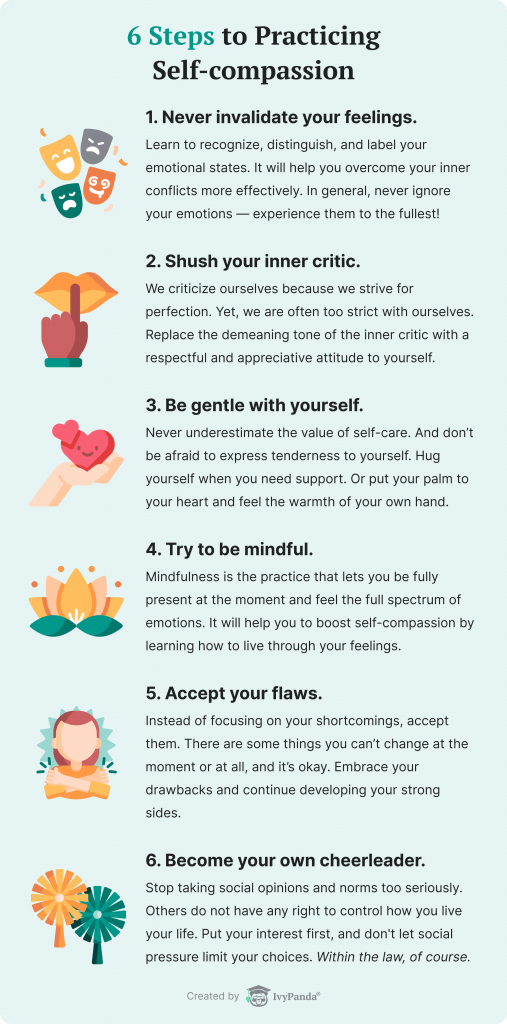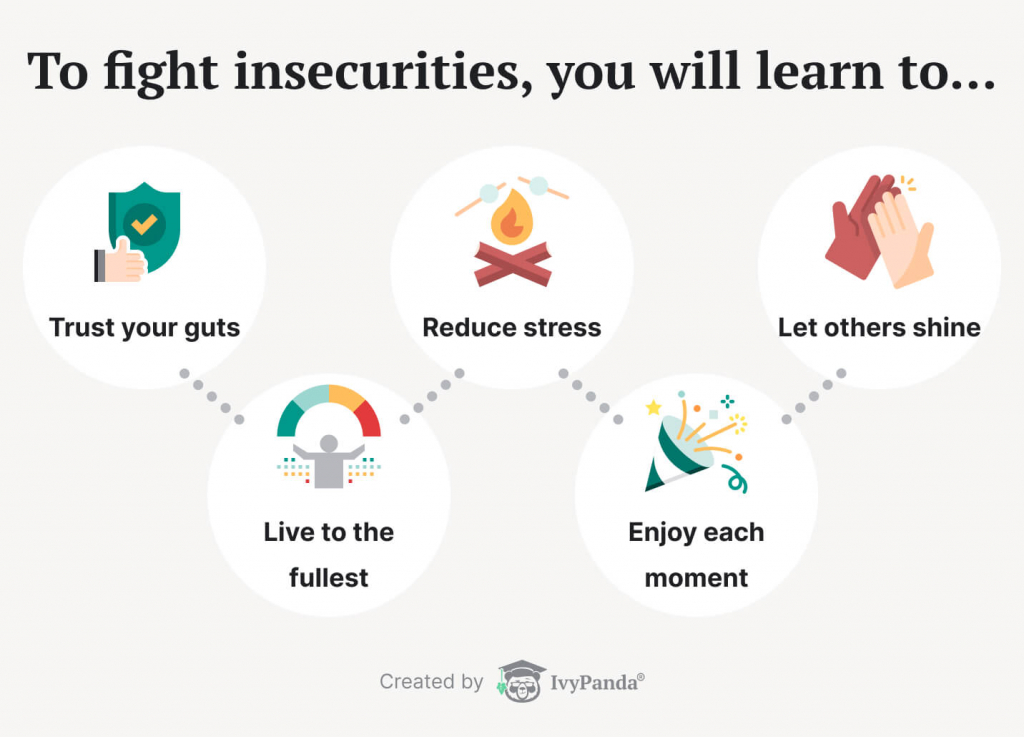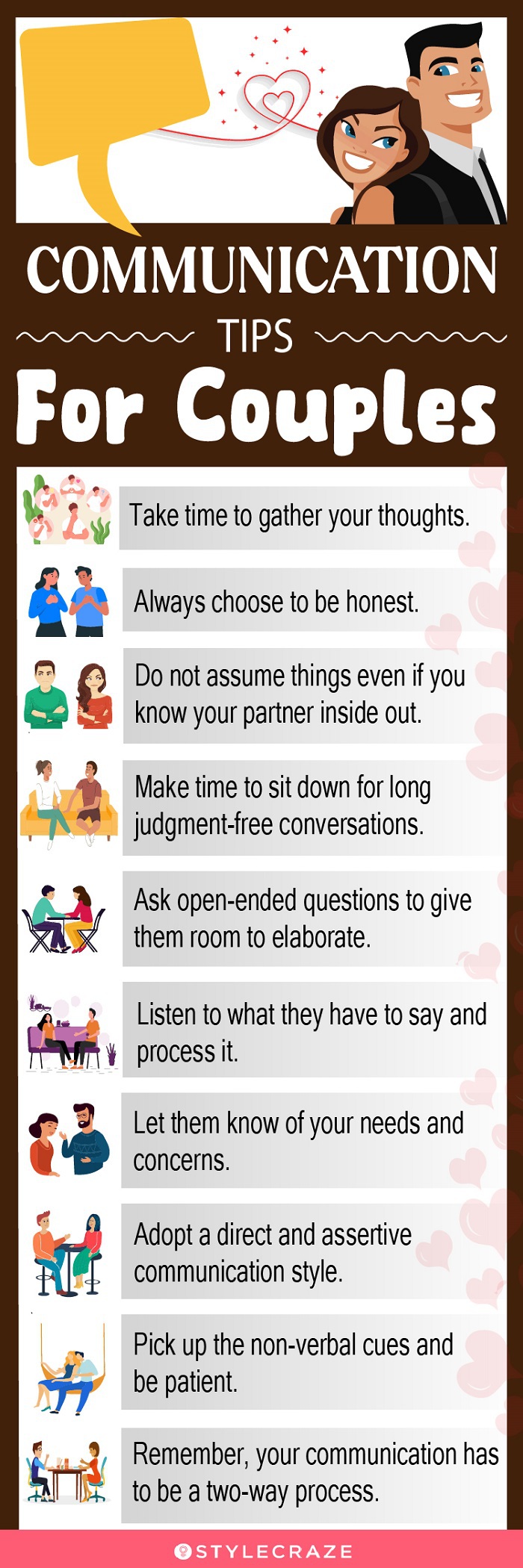
Are you looking for ways to communicate your insecurities without coming across as accusatory? It can be difficult to express your vulnerabilities without unintentionally placing blame on others. In this article, we will explore some strategies and tips to help you navigate these conversations with empathy and understanding. Whether it’s addressing insecurities in a romantic relationship or expressing your concerns in a professional setting, these techniques will ensure that your communication remains open and respectful. Let’s dive in and discover how you can express your insecurities in a constructive and non-accusatory manner.

This image is property of ivypanda.com.
Understanding Insecurities
What are insecurities?
Insecurities are thoughts, feelings, or beliefs about ourselves that make us doubt our own worth or value. They stem from various sources such as past experiences, societal pressures, or personal expectations. Insecurities manifest themselves in different ways, including self-doubt, anxiety, fear of rejection, or a constant need for validation. These feelings are common and can affect anyone, but it’s important to recognize them and address them in order to maintain healthy relationships.
Common triggers for insecurities
Insecurities can arise from a variety of triggers, and these triggers can differ from person to person. Some common triggers include comparison to others, criticism (real or perceived), past traumas, fear of failure, or even societal standards and expectations. It’s important to understand that these triggers are often subjective and deeply personal. Therefore, it is crucial to approach discussions about insecurities with sensitivity and empathy in order to build stronger relationships.
Effects of insecurities on relationships
Insecurities can have a significant impact on relationships. They can create a barrier to effective communication and hinder emotional intimacy. When individuals struggle with insecurities, they may constantly seek reassurance or question their partner’s intentions, leading to misunderstandings and conflicts. Insecurities can also manifest as jealousy or possessiveness, which can strain relationships and erode trust over time. It is important to recognize these effects and address insecurities proactively in order to maintain healthy and fulfilling connections with others.
Recognizing the Need for Communication
Importance of expressing insecurities
Expressing your insecurities is an important step towards building trust and understanding in your relationships. By openly communicating your fears, doubts, and anxieties, you give your partner an opportunity to support and reassure you. Additionally, expressing your insecurities allows your partner to better understand your emotions and perspective, fostering empathy and compassion. By sharing your vulnerabilities, you create a safe space for open dialogue, leading to a deeper connection and stronger bond.
Creating a safe space for open dialogue
When discussing insecurities, it is crucial to create a safe and non-judgmental environment that encourages open and honest communication. Start by expressing your desire for a supportive conversation and assure your partner that your aim is not to blame or accuse them. Emphasize that your intention is to increase understanding and work towards finding solutions together. By fostering a safe space, you can encourage your partner to express their own insecurities, paving the way for a more open and empathetic exchange.
Choosing the Right Time and Place
Picking an appropriate time
Choosing the right time to discuss your insecurities is essential. It is important to find a moment when both you and your partner are calm, focused, and available for a meaningful conversation. Select a time where distractions are minimized, and both of you can dedicate your full attention to the discussion. Avoid bringing up insecurities in the midst of an argument or during times of high stress, as this can escalate tensions rather than facilitating understanding.
Finding a comfortable setting
In addition to the timing, the setting for discussing insecurities should be comfortable and conducive to open communication. Find a quiet and private space where you both feel safe and at ease. This can be at home, on a walk, or anywhere else that allows you to have a meaningful and uninterrupted conversation. By choosing a comfortable setting, you can create an atmosphere that encourages vulnerability and fosters open dialogue.
Using ‘I’ Statements
Expressing feelings rather than blaming
When discussing insecurities, it is important to use “I” statements to express how you feel instead of blaming or accusing your partner. For example, instead of saying, “You always make me feel insecure,” reframe it as, “I sometimes feel insecure in certain situations.” By using “I” statements, you take ownership of your emotions and make it clear that you are not placing blame on your partner. This approach helps facilitate a more productive and empathetic conversation.
Focusing on personal experiences
In addition to using “I” statements, it is helpful to focus on sharing your personal experiences when discussing insecurities. Instead of making broad generalizations or assumptions about your partner’s behavior, share specific instances that triggered your insecurities. By providing concrete examples, you allow your partner to gain a better understanding of how their actions or words may have unintentionally affected you. Focusing on personal experiences provides a foundation for empathy and encourages effective problem-solving.

This image is property of ivypanda.com.
Being Mindful of Tone and Body Language
Keeping a calm and non-confrontational tone
The tone of your voice plays a crucial role in how your insecurities are perceived by your partner. It is important to maintain a calm and non-confrontational tone throughout the conversation. Avoid using a defensive or accusatory tone, as this can create defensiveness in your partner and lead to further misunderstanding. Instead, aim for a gentle and understanding tone that conveys your vulnerability and desire for support and understanding.
Using open and relaxed body language
In addition to tone, your body language can greatly impact the effectiveness of your communication. Adopting open and relaxed body language can create an inviting atmosphere for your partner to engage in the discussion. Maintain eye contact and keep your body relaxed and open rather than crossed or defensive. This conveys your willingness to listen and encourages your partner to feel comfortable sharing their perspective as well.
Avoiding Generalizations and Assumptions
Staying specific and focused
When discussing insecurities, it is important to stay specific and focused on the issue at hand. Avoid making generalizations or bringing up unrelated past grievances. By staying specific, you ensure that the conversation remains constructive and productive. Discuss one insecurity at a time and explore how it affects your relationship. This focused approach allows both you and your partner to better understand and address the specific insecurities affecting your relationship.
Avoiding sweeping statements or accusations
In order to maintain open and empathetic communication, it is crucial to avoid making sweeping statements or accusations. Making broad accusations can put your partner on the defensive and hinder a constructive conversation. Instead, focus on expressing your emotions and experiences without assigning blame. By avoiding sweeping statements and accusations, you encourage a more reciprocal and understanding dialogue.

This image is property of eddinscounseling.com.
Active Listening and Empathy
Encouraging partner to share their perspective
Effective communication is a two-way street, and it’s important to encourage your partner to share their perspective as well. By actively listening and creating space for your partner to express themselves, you demonstrate empathy and a genuine desire to understand their point of view. Encourage them to openly share their thoughts, feelings, and insecurities, and listen attentively without interrupting. By giving them the opportunity to be heard, you can foster a deeper level of empathy and connection.
Validating each other’s emotions
When discussing insecurities, it is essential to validate each other’s emotions. Both you and your partner’s feelings are valid and deserving of understanding and empathy. Provide reassurance and acknowledgement of your partner’s emotions, even if you may not fully understand or agree in the moment. Validating each other’s emotions fosters a sense of safety and acceptance, allowing for a more productive conversation where both individuals feel heard and supported.
Seeking Support and Professional Help
Importance of support networks
While open communication with your partner is vital, it is equally important to recognize the significance of support networks. Family, friends, or support groups can provide additional outlets for processing and discussing your insecurities. Sharing your experiences with trusted individuals who can provide different perspectives and empathetic support can be immensely beneficial. By expanding your support network, you create a well-rounded support system that can complement the communication within your relationship.
Considering therapy or counseling
In some cases, seeking guidance from a professional therapist or counselor may be beneficial. They can offer unbiased insights and provide techniques to help address and manage insecurities. Therapy or counseling sessions provide a structured and safe environment for both individuals in the relationship to explore and work through their insecurities. Professional help can facilitate deeper self-awareness, personal growth, and improved relationship dynamics.

This image is property of cdn2.stylecraze.com.
Working on Self-Esteem and Self-Acceptance
Building self-confidence
Working on self-esteem and self-acceptance is crucial in addressing insecurities. Engage in activities that make you feel good about yourself and reinforce your self-worth. Focus on your strengths and achievements, setting realistic goals that help build confidence over time. Surround yourself with positive influences and practice self-care regularly. By nurturing self-confidence, you create a solid foundation for addressing and managing insecurities within yourself and your relationships.
Practicing self-care and self-compassion
Self-care and self-compassion play pivotal roles in addressing and managing insecurities. Prioritize activities that promote physical, mental, and emotional well-being. Practice self-compassion by treating yourself with kindness and understanding. Be mindful of negative self-talk and replace it with positive affirmations. By embracing self-care and self-compassion, you can cultivate a healthier self-image and develop resilience against insecurities.
Continuing Open Communication
Making communication a regular practice
Open communication should be an ongoing practice in any relationship. Regularly check in with each other about insecurities, concerns, and emotional well-being. Set aside dedicated time for discussions, where both individuals can express themselves openly and honestly. By making communication a regular practice, you create a foundation of trust, understanding, and emotional intimacy that strengthens your relationship and helps address insecurities effectively.
Checking in on insecurities and progress
Periodically reviewing and discussing the progress made in addressing insecurities is essential. Revisit previous conversations to assess whether any changes have occurred. By checking in on insecurities, you demonstrate your commitment to growth and improvement. Celebrate milestones and small victories together, and address any setbacks with compassion and understanding. Continually evaluating and addressing insecurities allows for ongoing personal and relational growth.






